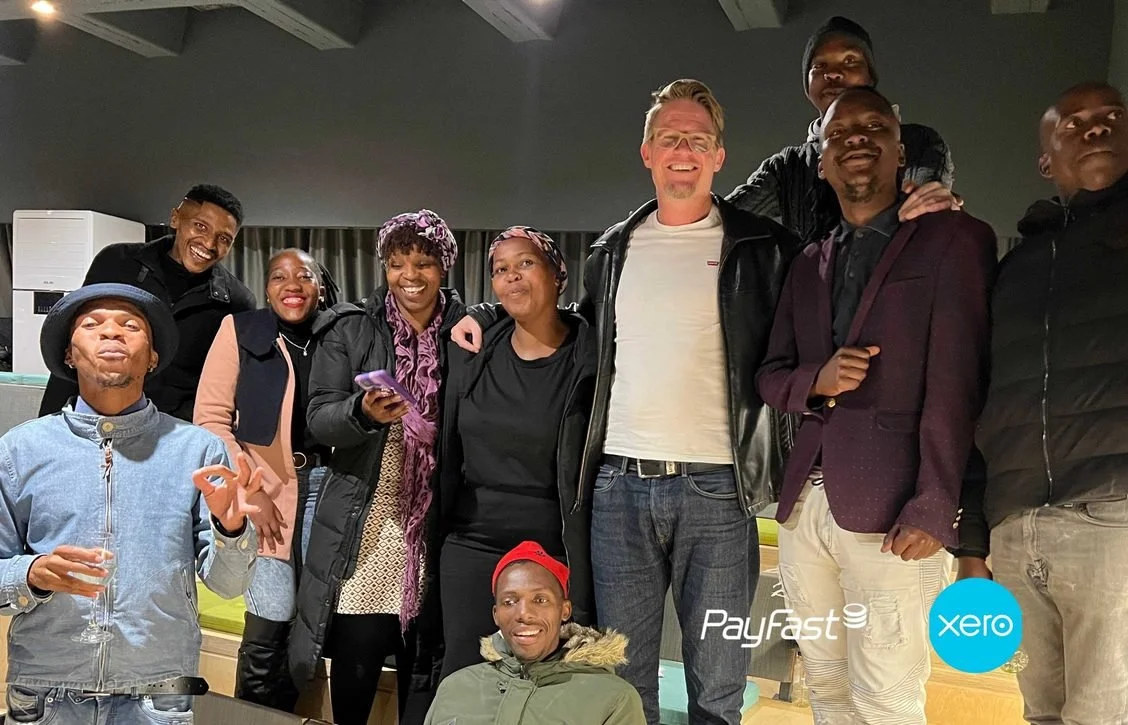What Makes Business Values So Valuable?
As regular readers of my Wednesday entrepreneur mailer will know, I’m a big Jim Collins fan.
Last year, he released Beyond Entrepreneurship 2.0, which is kinda like a rewrite of all his books, all smooshed into one. The sum total of all his learnings and wisdom can be summarised into two words: ‘people’ and ‘values’.
I’ve been thinking about this values thing a lot recently.
Why is it so important to the success of a business?
I mean, if JC says it’s so, then it must be so, right?
I recall back in my agency days, Mike, Louis and I used to run ‘purpose workshops’ to ascertain our clients' cause, values and mission. One fine day, we ran a session with a group of lawyers. The firm was one of the most lauded in the country. At the head of the table was the main dude, the guy who started the whole thing. He had a kind of Mr Burns vibe that made him look 150 years old in the shade.
I opened up the workshop by asking him, “Why do you get up in the morning?”
Mr Burns looked at me as if he was chewing on a wasp, and said, “We get up out of bed to make %&^$ tons of money!”
Alrighty then.
I’m fairly certain that’s not the kind of thing that ol’ Jim is talking about.
Jeremy Barty, the very wise founder of MC4C, shared with our team a few weeks ago: business values that don’t translate into behaviour are not values - they’re aspirations.
Often when businesses try to instil values, they’re “just conversations,” says Barty.
In his entrepreneur recipe on Heavy Chef, Barty told us, “Conversations don't lead to change. The idea of change is not change, it's just the idea. So many of these values sit in this fluffy cloud and they are fragmented. They're not joined into the practical reality of the day-to-day. Often that's just because it's hard to do that - and it’s painful.”
My team and I have taken this to heart. We created our ‘ingredients’ which are our values, our mission, vision, purpose and character traits all rolled into one. You can check ‘em out here.
The first two, Inspire and Empower, are our ‘why’. Learn, Do and Share are our ‘how’. Humble and Ambitious are ‘who’ we are. Design is a golden thread through everything and keeps us focused. Feelings and Facts underpin how we interact with each other.
Jim Collins (Did I tell you that I am a fan? No? Well, I’m a fan!) emphasises that having ‘vision’ in our businesses means that we must first figure out our values and beliefs, then our purpose and our mission.
Collins has a great guide, called the Collins Porras Vision Framework, that you can download here. In the pdf, he lists great companies through the ages and outlines their values and beliefs.
JC quotes Tom Watson Jr., famed CEO of IBM, “We must be prepared to change everything, except our values and beliefs.”
This applies even if a business is small or even just starting out.
I asked Mike Perk about this, and he reminded me, “A business has values, even if you’re not aware of them. If you want to know what your ‘business values’ are, look at your behaviour. Look at the behaviour of your team.”
Our behaviours reveal what we value.
This can be scary. If team members are dishonest and lazy, then the real values are ‘dishonesty’ and ‘laziness’.
It doesn’t matter what the list on the company website says.
If our products break and our deliveries are late, then we do not value our customers.
Let’s examine our behaviours and ascertain the positive outputs of our team members, our structures and our systems.
Even as a small or medium-sized company, let’s outline the behaviours that are good and impactive. What do we value that has lasting value? What tasks and roles do we perform that we would do, even if we were not paid for them?
The upside of this process is difficult to quantify - and even harder to convey in strong enough terms.
Accurately defined values mean a more scalable business, better staff retention, the ability to attract the right people, improved decision-making, empowered teams and… a more enjoyable place to work.
So, think, what would JC do? *
He’d probably ask you something like this:
Would you want your organisation to continue to stand for these core values 100 years into the future, no matter what changes occur in the outside world?
* Apologies to any readers who are still wearing their WWJD bracelets. Peace!






